Knowledge and Knowing
”
Knowledge & Knowing” is a ḥalaqah thematic unit designed for learners aged 11-12. This thematic unit delves into the profound concept of ʿilm (knowledge), exploring the acquisition, sources, and implications of the active act of knowledge and knowing. Grounded in Islamic teachings, this unit nurtures the learner’s understanding of knowledge as both a means to draw closer to Allāh ﷻ and a tool for navigating the world with wisdom and sincerity. The journey begins by defining knowledge and knowing. Learners explore the Qurʾānic and Prophetic emphasis on seeking knowledge, reflecting on the verse:
“Read in the name of your Lord who created—created man from a clinging substance. Read, and your Lord is the Most Generous—Who taught by the pen—taught man that which he knew not.” [Sūrah al-ʿAlaq, 96: 1–5].
Learners explore multiple pathways to knowledge: revelation (waḥy), intellect (ʿaql), heart (qalb), and sensory experience. Discussions highlight the distinction between beneficial knowledge and knowledge that leads to arrogance, reinforcing the importance of intellectual humility—acknowledging the limits of one’s understanding and remaining open to learning. The ḥadīth, “Whoever Allāh wishes good for, He gives him understanding of the Religion” (Bukhārī & Muslim), emphasizes knowledge as a divine gift that must be sought with sincerity (ʾikhlāṣ). Learners reflect on the adab of seeking knowledge—purifying intentions, asking meaningful questions, and practicing waraʿ (cautiousness). The concepts of intellectual curiosity and intellectual humility are weaved throughout the unit, allowing learners to reflect on their roles in pursuing truth with sincerity while recognizing the vastness of what they do not yet know. A key component of this journey is the ḥalaqah space, where students engage in dialogue, critically examine ideas, and lead discussions. They explore the ethics of knowledge, the difference between farḍ ʿayn and farḍ kifāyah (individual and communal obligations) in learning, and how past civilizations flourished through knowledge.
The unit encourages a holistic approach to knowledge, integrating both sacred and worldly learning. Learners explore maʿrifah (deep knowing of Allāh ﷻ), the role of doubt in strengthening faith, and the balance between knowledge and action. They also reflect on the responsibility of knowledge—how it shapes character, influences decisions, and serves the greater good.
Our curriculum materials are still in the process of being printed and will be available in late 2025 and we are currently taking pre- orders. If you have already placed an order, we will be sending you a follow up email with details of sending your products.
£49.99
Description
“Knowledge & Knowing” is a ḥalaqah thematic unit designed for learners aged 11-12. This thematic unit delves into the profound concept of ʿilm (knowledge), exploring the acquisition, sources, and implications of the active act of knowledge and knowing. Grounded in Islamic teachings, this unit nurtures the learner’s understanding of knowledge as both a means to draw closer to Allāh ﷻ and a tool for navigating the world with wisdom and sincerity. The journey begins by defining knowledge and knowing. Learners explore the Qurʾānic and Prophetic emphasis on seeking knowledge, reflecting on the verse:
“Read in the name of your Lord who created—created man from a clinging substance. Read, and your Lord is the Most Generous—Who taught by the pen—taught man that which he knew not.” [Sūrah al-ʿAlaq, 96: 1–5].
Learners explore multiple pathways to knowledge: revelation (waḥy), intellect (ʿaql), heart (qalb), and sensory experience. Discussions highlight the distinction between beneficial knowledge and knowledge that leads to arrogance, reinforcing the importance of intellectual humility—acknowledging the limits of one’s understanding and remaining open to learning. The ḥadīth, “Whoever Allāh wishes good for, He gives him understanding of the Religion” (Bukhārī & Muslim), emphasizes knowledge as a divine gift that must be sought with sincerity (ʾikhlāṣ). Learners reflect on the adab of seeking knowledge—purifying intentions, asking meaningful questions, and practicing waraʿ (cautiousness). The concepts of intellectual curiosity and intellectual humility are weaved throughout the unit, allowing learners to reflect on their roles in pursuing truth with sincerity while recognizing the vastness of what they do not yet know. A key component of this journey is the ḥalaqah space, where students engage in dialogue, critically examine ideas, and lead discussions. They explore the ethics of knowledge, the difference between farḍ ʿayn and farḍ kifāyah (individual and communal obligations) in learning, and how past civilizations flourished through knowledge.
The unit encourages a holistic approach to knowledge, integrating both sacred and worldly learning. Learners explore maʿrifah (deep knowing of Allāh ﷻ), the role of doubt in strengthening faith, and the balance between knowledge and action. They also reflect on the responsibility of knowledge—how it shapes character, influences decisions, and serves the greater good.
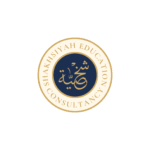

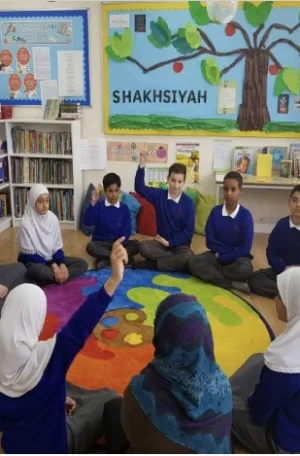
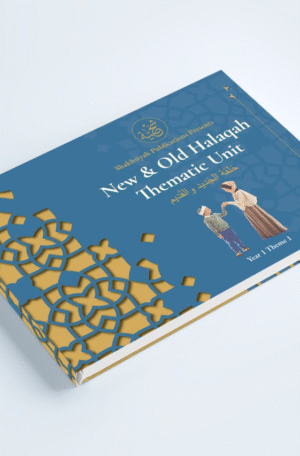
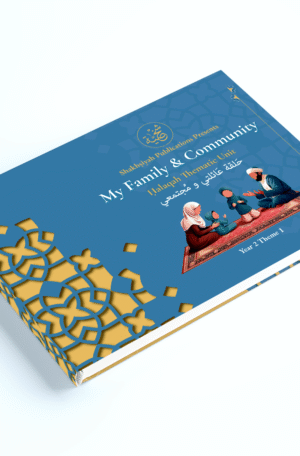
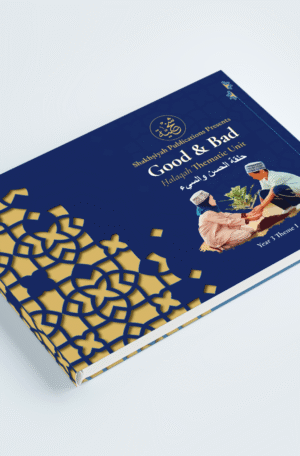
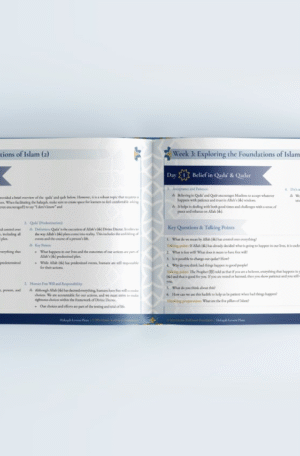

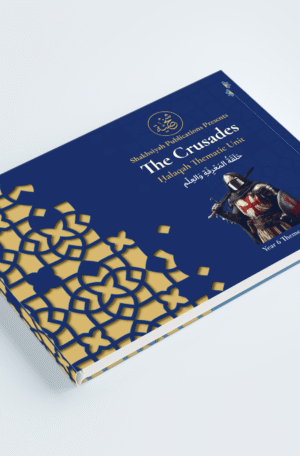
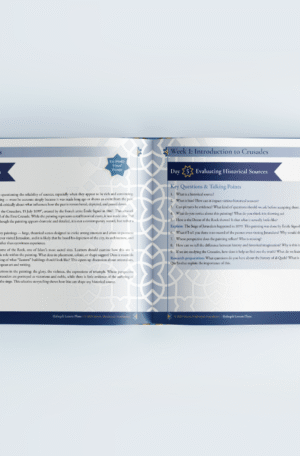
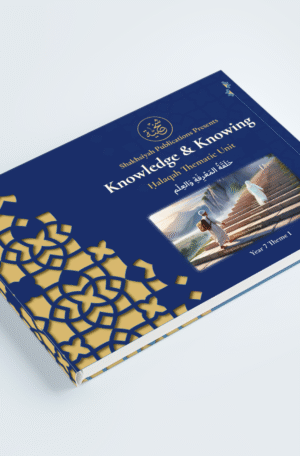
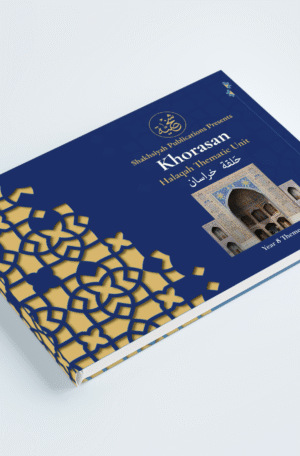
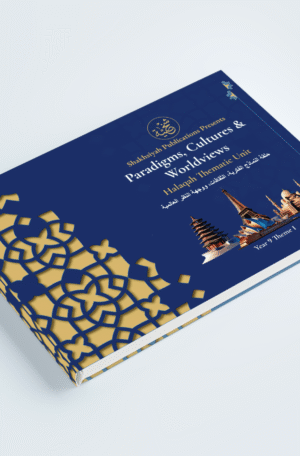
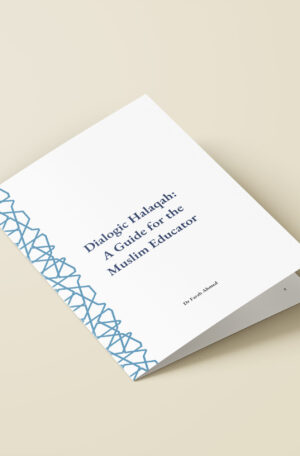
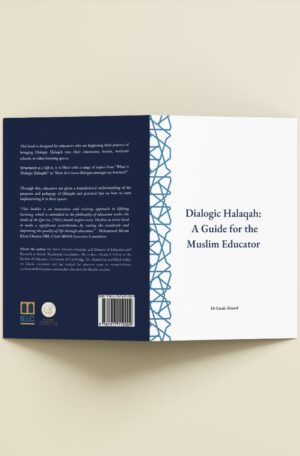
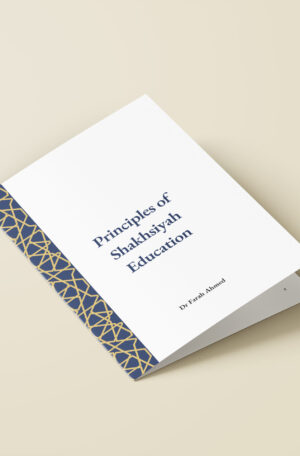
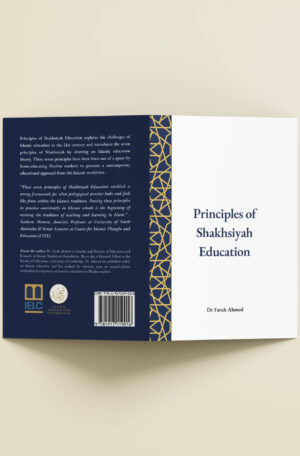

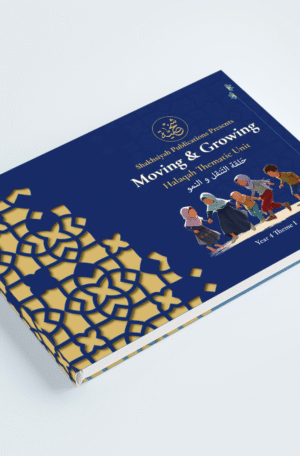
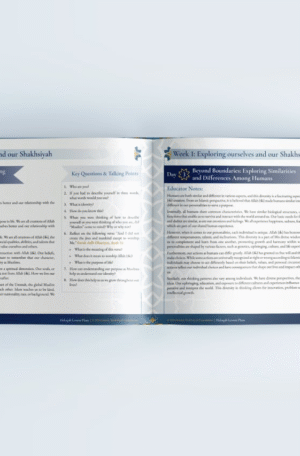
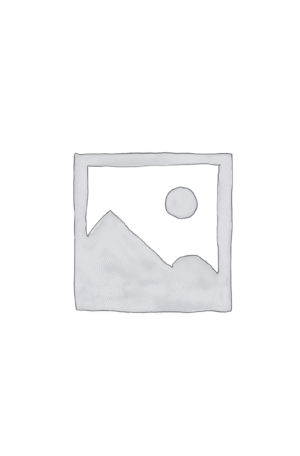

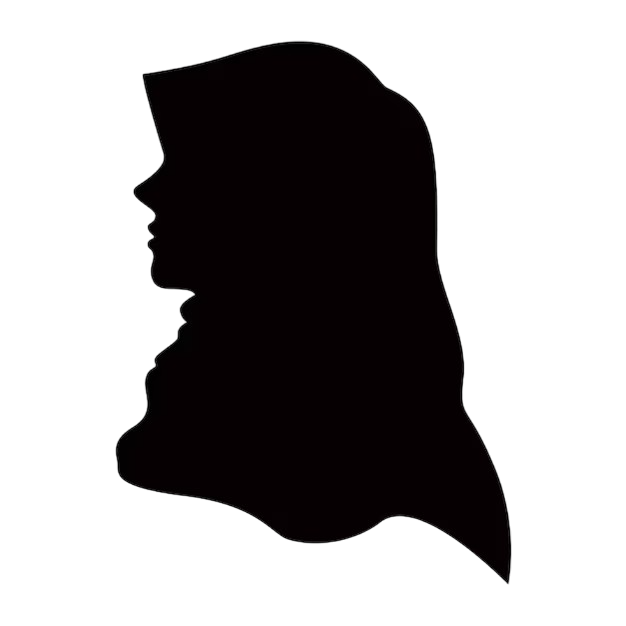
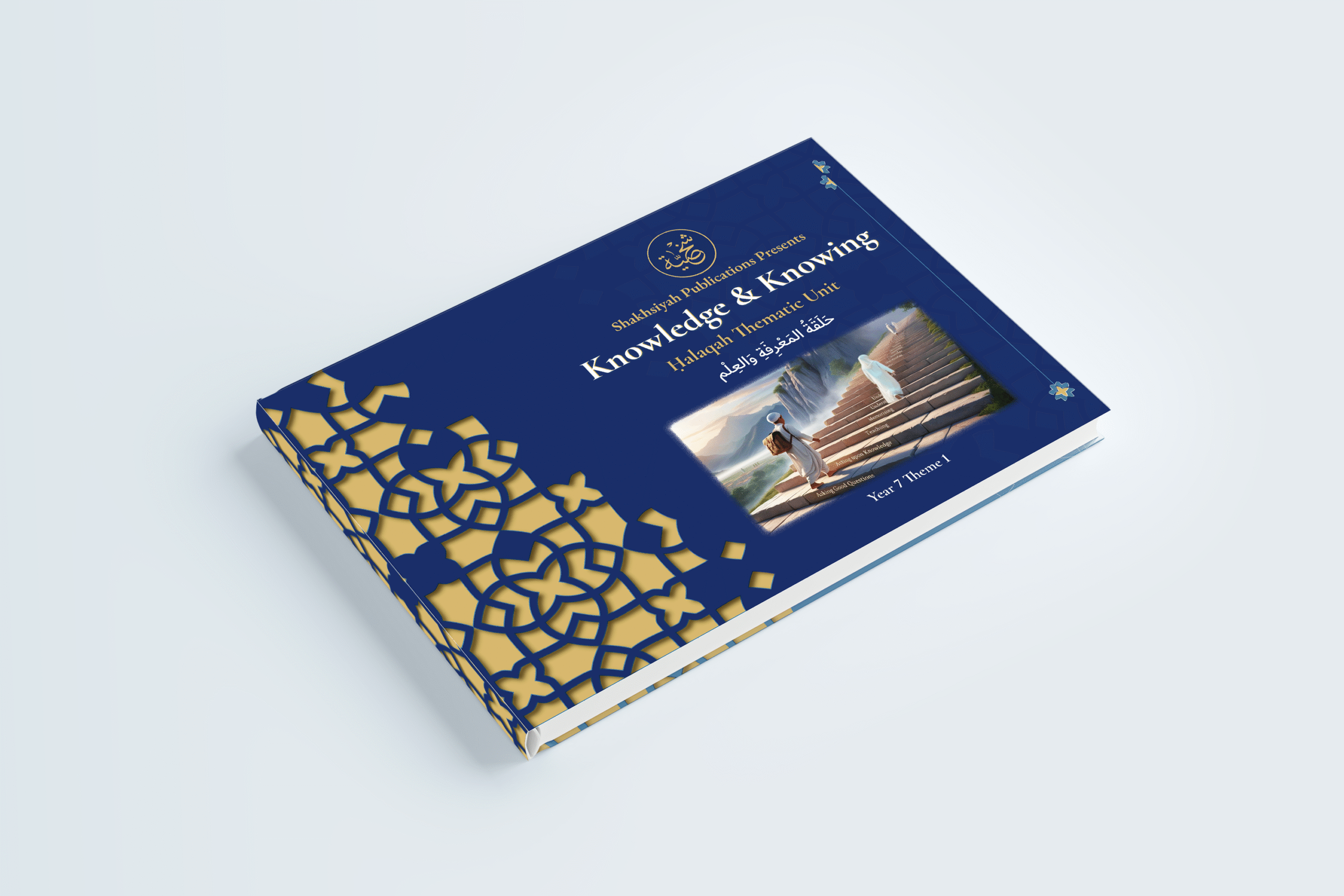
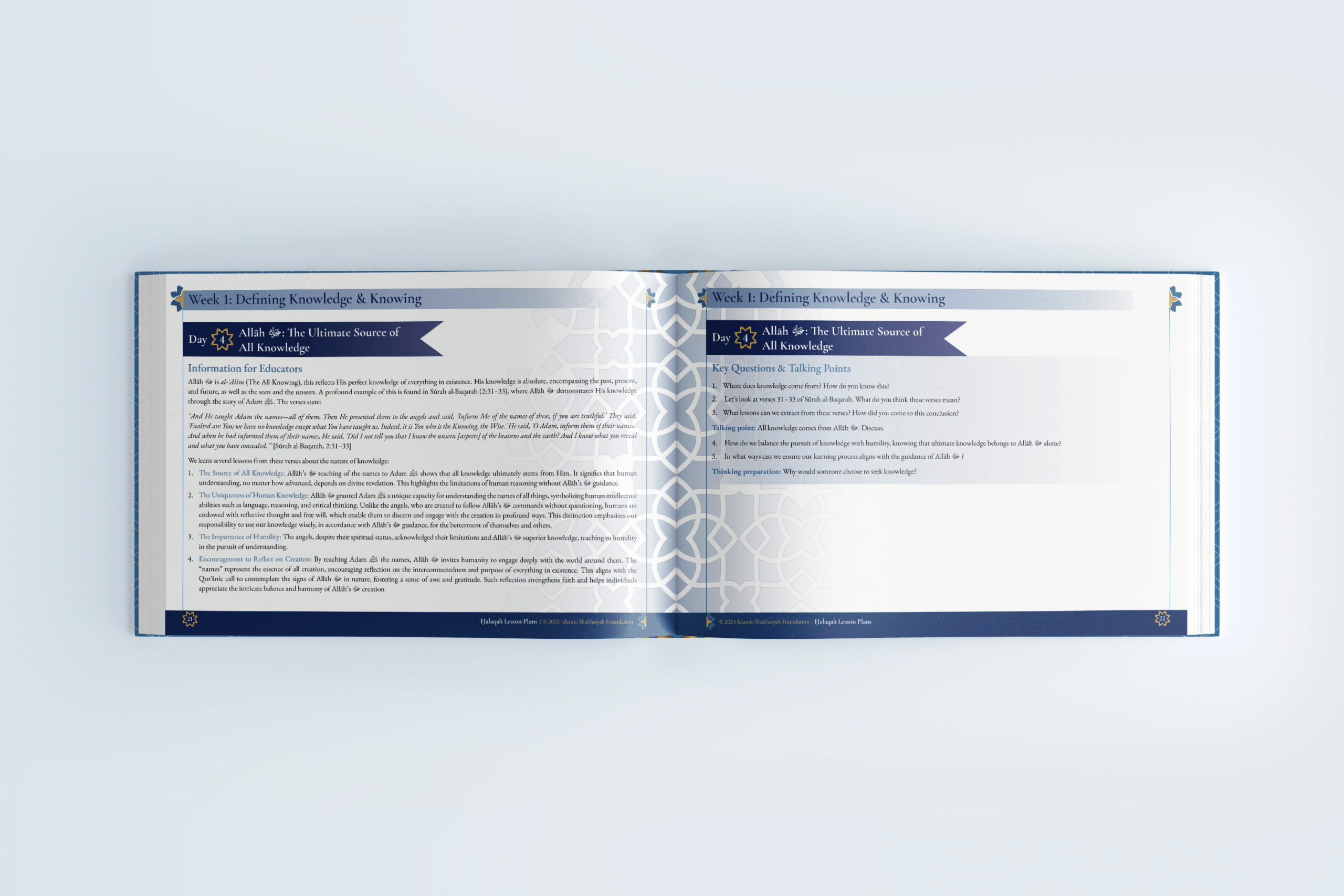
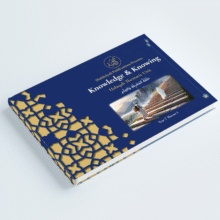
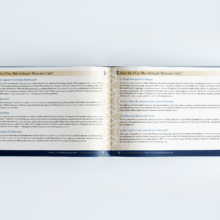
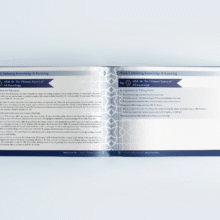
Reviews
There are no reviews yet.